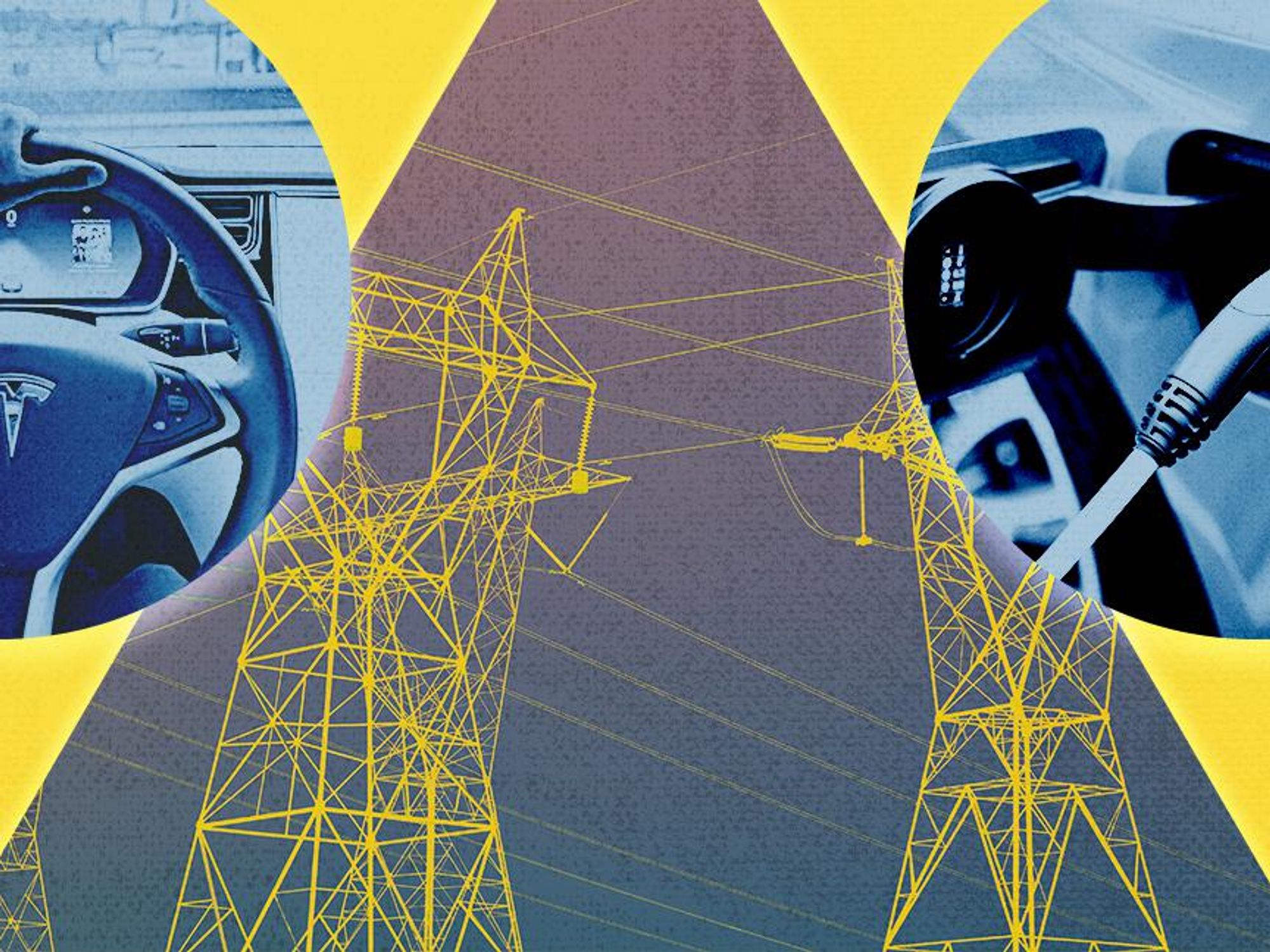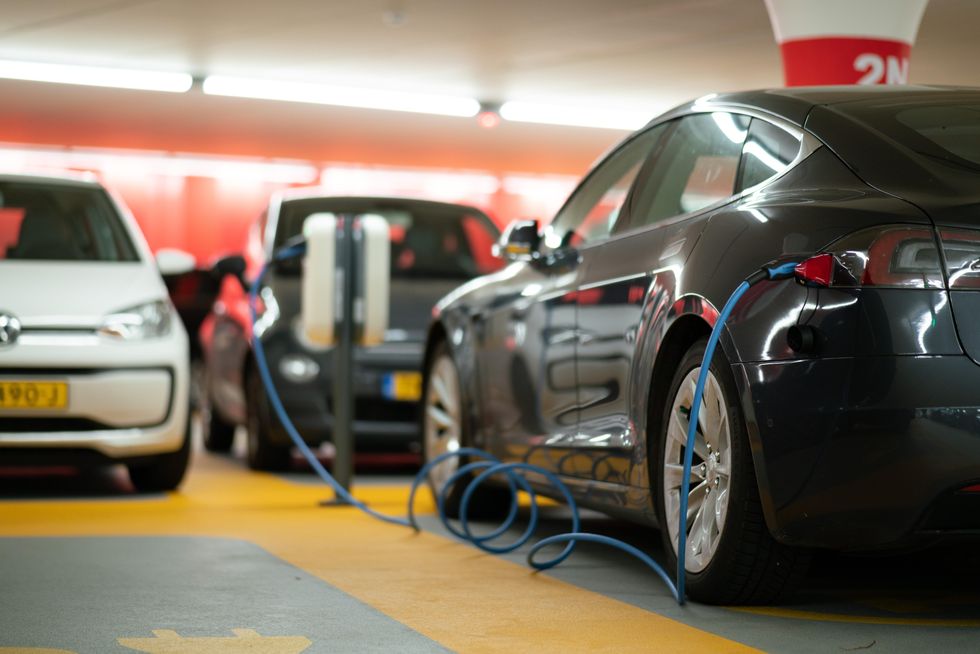For Buyers, EV Incentives Are a Godsend — and a Head Scratcher
Zac Estrada is a reporter covering transportation, technology and policy. A former reporter for The Verge and Jalopnik, his work has also appeared in Automobile Magazine, Autoweek, Pacific Standard, Boston.com and BLAC Detroit. A native of Southern California, he is a graduate of Northeastern University in Boston. You can find him on Twitter at @zacestrada.

Los Angeles provides one of the best models for creating incentives to encourage people to buy electric cars — even if those various programs and qualifications can be confusing to navigate.
Nationally, the electric vehicle (EV) sector is growing at a rapid clip. President Biden continues his efforts to add electric vehicle chargers across the country and speed up EV adoption, and a number of new electric vehicles are coming to market in the near future, with established automakers like General Motors, Honda and Volvo setting deadlines to go all-electric. Meanwhile, startups like Fisker, Lucid and Rivian are slated to start delivering vehicles to reservation holders over the next year, and Tesla continues to report sales gains every quarter.
The push for EV is especially strong in California, where Governor Gavin Newsom signed an executive order last year banning the sale of new cars with internal combustion engines by 2035.
Among the most significant barriers to EV is price; even Elon Musk admits the vehicles have to come down in price before they'll see widespread adoption. Yet while electric cars have considerably higher price tags than comparable gasoline-powered models, a slew of manufacturer incentives and government subsidies have helped offset the cost.
"Some states have a more welcoming approach, while others only complicate the matter and make it harder for consumers to make the switch," said Robby DeGraff, an auto industry analyst for automotive marketing research firm AutoPacific. "There's a lot of work that needs to be done by the Biden administration and thankfully there's ambition for change to happen."

Southern California residents — especially those living in L.A. — are best positioned to take advantage of existing rebates and incentives. In addition to the maximum $1,500 California Clean Fuel Reward and $7,500 maximum federal EV tax credit, L.A. residents can get a $500 rebate toward the purchase of a Level 2 EV home charger through the the Los Angeles Department of Water and Power (LADWP), which replenishes a battery pack far more quickly than a standard 120-volt household outlet. LADWP also kicks in an additional $250 if EV owners install a separate meter for the vehicle charger — an offer that takes advantage of a discounted electricity rate of 2.5 cents per kilowatt hour on base period charging. That period runs on weekends and between 8 PM and 10 AM on weekdays.
"There are a number of barriers to adopting electric vehicle technology, including affordability," said Kianiwai Jones, LADWP's assistant supervisor of electric transportation programs. "More incentives at every level will be key to adoption."
As far as Jones can see, people seem to be latching onto the incentive programs. She says she fields fewer questions from customers concerned about the cost of a home charger than in years past.
But the learning curve around charging still exists, Jones says, particularly when it comes to managing power usage during peak hours. "You charge based on what you need, and not as fast and as quick as possible," Jones said. "If you're going to charge overnight and you have 8 to 10 hours, it's going to impact your bill differently. If you increase your electric usage, you're going to increase your bill. But that's offset by the fact that you're not using gasoline."
LADWP offers a $1,500 rebate towards the purchase of an EV between 2 and 8 years old. (Some used EVs can be a bargain on their own: A five-year-old Nissan Leaf, for example, can cost under $10,000.) Applicants don't have to have utility bills in their name, but must prove they live in the utility's coverage area and use the service.
"We're very focused on equity, not only to increase (EV) adoption in general, but so that low-income and disadvantaged residents have access," Jones said. "The used EV market is the more affordable market and we want to promote that further."
LADWP customers have taken notice of the used EV rebate program, with 1,106 participants in 2020 versus just 634 in 2019.
Used EVs have some limitations, the first of which being that these older EVs were originally designed to go around 100 miles on a full charge, not the 200-plus that's rapidly becoming the perceived minimum. And the batteries aren't new, either.
"Battery degradation has been and will continue to be somewhat of a concern for used EVs, but then again not everyone needs 200-300 miles of range, especially if you have a home charger," DeGraff said. Electric cars have historically counted for barely 1% of all vehicles in the U.S., so the pool of used examples is vastly smaller than that of conventionally powered cars.
But there's a potential downside to EV buyers' wide range of subsidy options: With all of the different agencies offering different programs, customers may find themselves in a maze of qualifications.
Electric cars from General Motors and Tesla no longer qualify for the $7,500 federal tax credit because those automakers have reached the 200,000-unit cap for that incentive. Nissan, which will add the electric-only Ariya SUV to its lineup next year, is likely to hit that ceiling next.
The GREEN Act, introduced in Congress in February by California Rep. Mike Thompson (D-St. Helena) would lower the tax credit to a $7,000 maximum but raise the cap to 600,000 cars. But there hasn't been movement on the bill since it was introduced. President Biden also wants to give direct rebates to EV customers, but that's also stuck as part of his $2.25 trillion infrastructure plan.
In California, the incentive of up to $2,000 under the Clean Vehicle Rebate Project has been exhausted as of April 23 and a waitlist has opened up until the state Legislature decides what to do with it. It's effectively been replaced by the California Clean Fuel Reward, with a rebate of up to $1,500 for any new plug-in vehicle. (The California Clean Fuel Reward grants a rebate at the point of purchase and allows the buyer to apply the rebate upfront, rather than issuing the rebate weeks later—as most programs do.)
The LADWP home charger program was set to expire this month and the used EV incentive next year, but Jones says both programs are expected to be renewed. LADWP's board of water and power commissioners has given the go-ahead to the agency to fund the programs until 2028 or until they're no longer deemed necessary.
The utility company programs are also funded with assistance from the California Air Resources Board and its low-carbon fuel standard and cap-and-trade programs. CARB currently runs the Clean Cars 4 All program that offers low-to-middle income residents in various counties including Los Angeles County up to $9,500 to scrap their qualifying gasoline vehicle and replace it with an EV. The Clean Vehicle Assistance Program offers those customers grants of as much as $5,000 and lower finance rates towards the purchase of a plug-in vehicle. But CARB anticipates those programs will run out of funding by July without indication they will be renewed.
Jones says LADWP has worked with Plug In America, a nonprofit group advocating electric vehicles, to help consumers and dealers navigate the qualifications for the various incentives before any sale of a vehicle is completed. Dealers around LADWP's service area can become certified as EV experts to better inform customers looking to purchase a plug-in vehicle.
"Understanding your specific situation and your behavior is going to be important," Jones said. "We do have people who are ready and willing to help the customers. It's just a smart way to reduce the impact."
Lead illustratio by Ian Hurley.
- LA Has Become a Magnet for EV Charging Station Startups. - dot.LA ›
- Fisker's Losses Mount as Ocean EV Production Looms - dot.LA ›
- EVgo Will Work with GM on Its Nationwide EV Charging Network ... ›
- LA City Officials Push For Electric Vehicle Master Plan - dot.LA ›
- Rivian Raises Electric Vehicle Prices - dot.LA ›
- Can We Afford to Wait for Electric Vehicles? - dot.LA ›
- Own an Electric Car? You’re Included in Newsom’s Gas Rebate - dot.LA ›
- Electric Car Owners Are Included in Newsom’s Gas Rebate - dot.LA ›
- New Climate Legislation Upends Electric Vehicle Pricing - dot.LA ›
- Policy Experts Praise California’s 2035 Gas Vehicle Ban - dot.LA ›
- California’s Film and TV Tax Credit 3.0 Tabled Till 2023 - dot.LA ›
- How To Get Paid to Drive an Electric Vehicle - dot.LA ›
- Transportation Companies Are Switching To EVs To Reduce CO2 - dot.LA ›
- Plug-In Hybrid Electric Vehicles: Worth It or Waste It? - dot.LA ›
- Here's Why Government Incentives for Used EVs Make No Sense - dot.LA ›
- The Latest From LA's Progressing but Messy EV Scene - dot.LA ›
Zac Estrada is a reporter covering transportation, technology and policy. A former reporter for The Verge and Jalopnik, his work has also appeared in Automobile Magazine, Autoweek, Pacific Standard, Boston.com and BLAC Detroit. A native of Southern California, he is a graduate of Northeastern University in Boston. You can find him on Twitter at @zacestrada.





